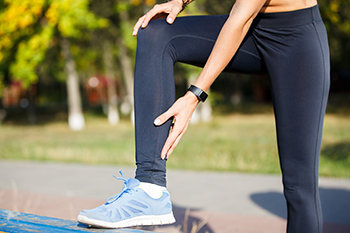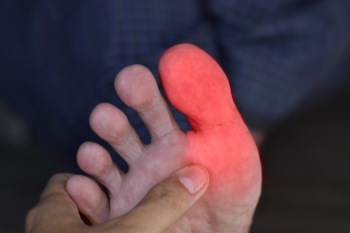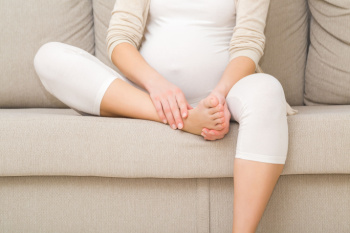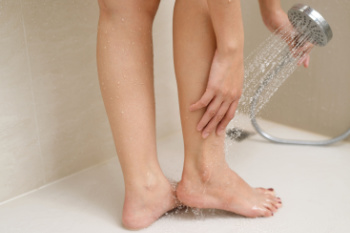
A common Achilles tendon injury known as Achilles tendinopathy is a condition characterized by pain and inflammation in the Achilles tendon, the thick band connecting the calf muscles to the heel bone. This condition often manifests as a dull ache or stiffness in the back of the heel, particularly noticeable during or after physical activity. Common symptoms include swelling, tenderness, and a decrease in flexibility. The primary causes of Achilles tendinopathy include repetitive strain from overuse, sudden increases in activity, and wearing poor footwear. Factors like tight calf muscles or improper running technique can also contribute to the development of this condition. An Achilles tendon injury can lead to severe pain, and most likely will cause difficulty in completing daily activities. If you have sustained this type of injury, it is strongly suggested that you schedule an appointment with a podiatrist who can begin the treatment process.
Achilles tendon injuries need immediate attention to avoid future complications. If you have any concerns, contact one of our podiatrists of Associates in Podiatry, PC. Our doctors can provide the care you need to keep you pain-free and on your feet.
What Is the Achilles Tendon?
The Achilles tendon is a tendon that connects the lower leg muscles and calf to the heel of the foot. It is the strongest tendon in the human body and is essential for making movement possible. Because this tendon is such an integral part of the body, any injuries to it can create immense difficulties and should immediately be presented to a doctor.
What Are the Symptoms of an Achilles Tendon Injury?
There are various types of injuries that can affect the Achilles tendon. The two most common injuries are Achilles tendinitis and ruptures of the tendon.
Achilles Tendinitis Symptoms
- Inflammation
- Dull to severe pain
- Increased blood flow to the tendon
- Thickening of the tendon
Rupture Symptoms
- Extreme pain and swelling in the foot
- Total immobility
Treatment and Prevention
Achilles tendon injuries are diagnosed by a thorough physical evaluation, which can include an MRI. Treatment involves rest, physical therapy, and in some cases, surgery. However, various preventative measures can be taken to avoid these injuries, such as:
- Thorough stretching of the tendon before and after exercise
- Strengthening exercises like calf raises, squats, leg curls, leg extensions, leg raises, lunges, and leg presses
If you have any questions please feel free to contact our offices located in Pittsburgh-South Hills, and Pittsburgh-Bellevue, PA . We offer the newest diagnostic tools and technology to treat your foot and ankle needs.




